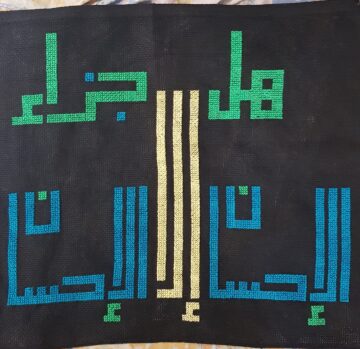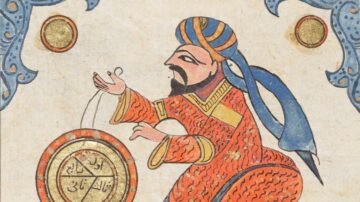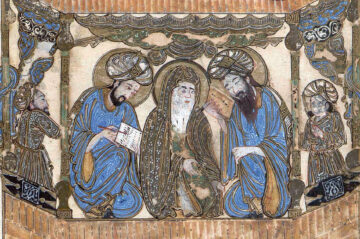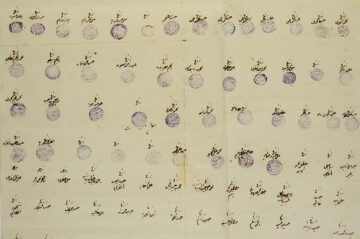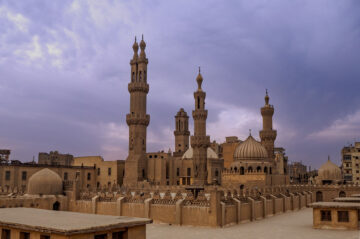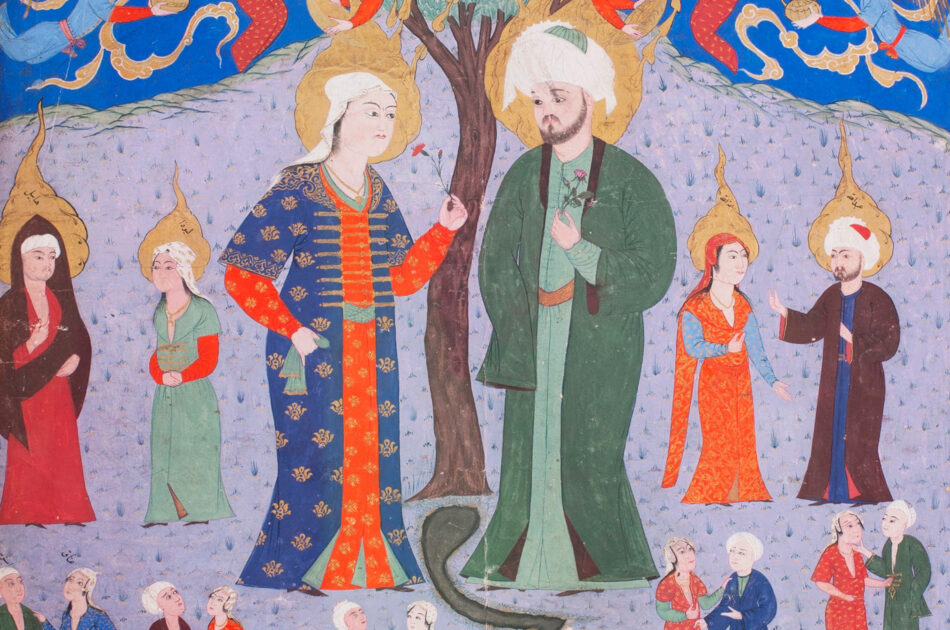
-
Status
Ended -
Date
09 Jan 2025 -
Location
Online
This Arabic language lecture will be held at 16:30 GMT
Are female humans excluded from being an insān kāmil?
God’s ”representative” on earth as described in verse 2:301 has generated many discourses, from designating the Prophet as the most perfect human, to Sufis who aspired to achieve the perfection of al-insān al-kāmil, and the theological discourses of ʿilmKnowledge, science, learning; also, more specifically religious knowledge. In Shi‘ism this term also refers to the special knowledge of the Imams. al-kalām. However, before political correctness took root even in academia, the term al-insān al-kāmil was usually translated into English2 as “the perfect man,” replacing the umbrella term human and making “man” a synecdoche, thereby side-lining women and excluding half the human race from achieving or aspiring to perfection.
Though this is not the case in Arabic, where all three terms — insān, rajul or dhakar and imraʾa or unthā — are different, women were still barred from the discussions around al-insān al-kāmil, despite the declaration of the Qur’an(also Koran. Arabic term meaning, ‘recitation’ or ‘scripture’): Muslims believe that the Holy Qur’an contains divine revelations to the Prophet Muhammed received in Mecca and Medina over a period of… More in verse 4:13 that both are essentially two halves of one, having been created from a single being or soul. Consequently, the preservation and protection of divine creation on earth, rational reflection and judgement, legislative and scholarly privileges and interactions became exclusive to male humans rather than all humans. This was also reflected in the ḥadīthLit. ‘report’ or ‘narrative,’ used for the traditions of the Prophet Muhammad and in Shi‘i Islam also for those of the Imams. corpus and supported by the exegetical tradition in circular arguments, describing female humans as deficient in mind and intellect, the cause of fitna needing restraints and keepers, readily provided by the rules of fiqhThe science of Islamic jurisprudence. declaring them often to be minors requiring guardianship.
However, looking at the women described in the Qur’an, a different picture emerges. Women’s voices and actions change the course of history many times, some receive divine inspiration, others preserve and protect divine creation and prophets, most serve God in many ways, all are capable of rational reflection and sound judgement, one argues with the Prophet and is vindicated by God and some are the cause of legislations, many of which became the basis for privileges for other women.
This paper analyses the Qur’anic messages gleaned from the stories and actions of several extraordinary women,4 and argues that the Qur’an designates them as entitled to claim perfection and therefore to be among others aspiring to being al-insān al-kāmil.
Speakers
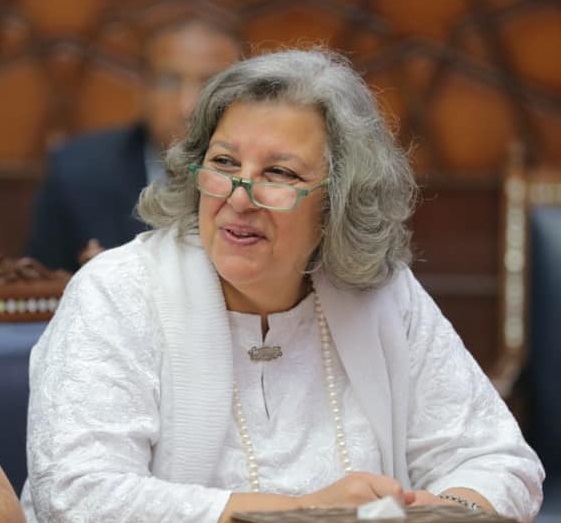
Yasmin Amin
Yasmin Amin is the Representative of the Orient-Institut Beirut (Max-Weber-Stiftung) in Cairo. She is an Egyptian German who holds a BA in Business Administration, a PGD and an MA in Islamic Studies, all three from the American University in Cairo. She received her PhD in Islamic Studies from Exeter University’s Institute of Arab and Islamic Studies researching ‘Humour and Laughter in the Ḥadīth’. Her research covers various aspects of gender issues, early Muslim society and culture, as well as the original texts of Islamic history, law and Hadith. She is co-translator (with Nesrin Amin) of The Sorrowful Muslim’s Guide (Edinburgh University Press/AKU-ISMC 2018), and co-editor (with Nevin Reda) of Islamic Interpretive Tradition and Gender Justice: Processes of Canonization, Subversion and Change (McGill-Queens University Press, 2020). She has published extensively, and her next book is a translation of Nazira Zeineddine’s books with Edinburgh University Press/AKU-ISMC (forthcoming 2025).
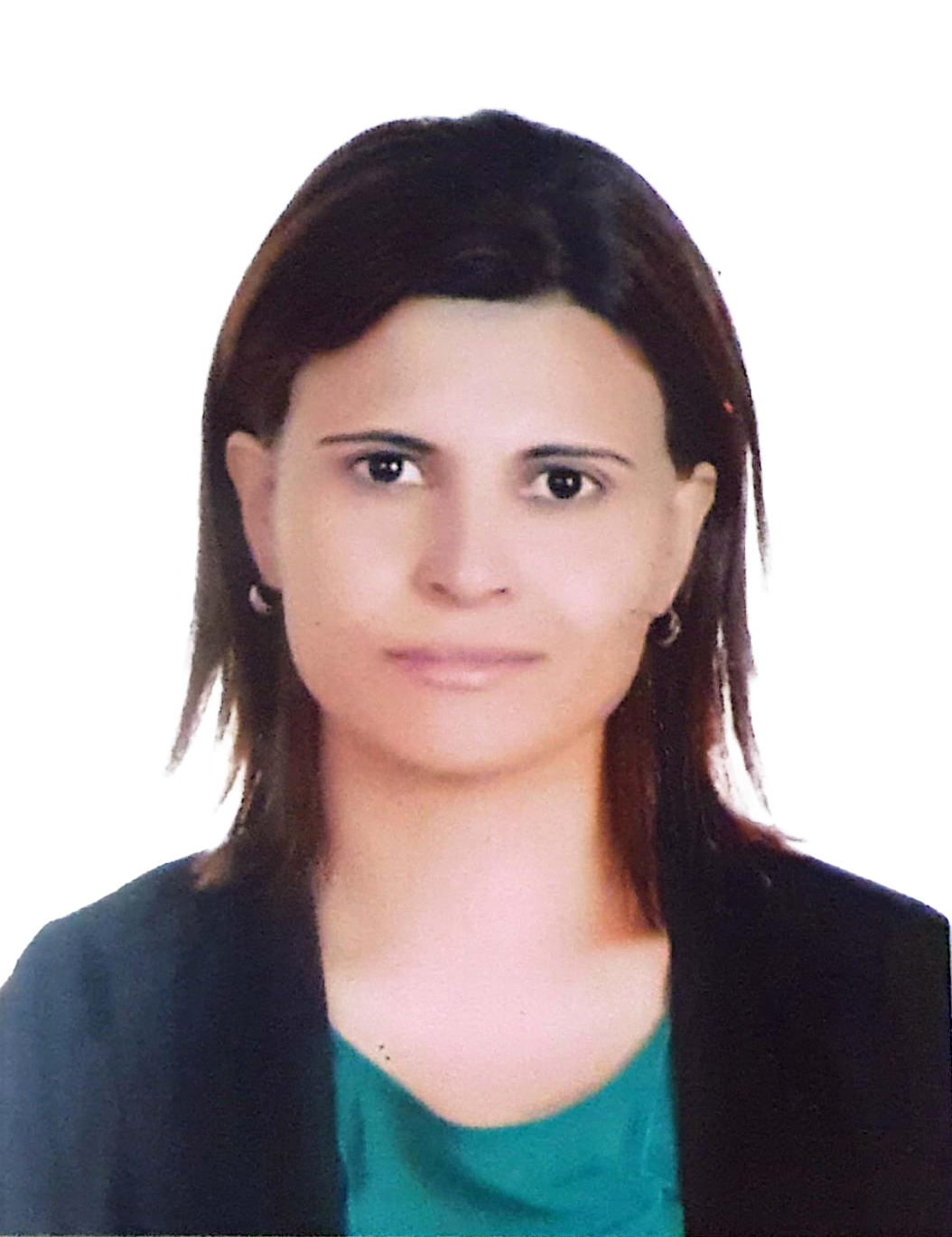
Nuha Alshaar
Associate Professor
Dr Nuha Alshaar has a PhD in Islamic and Middle Eastern Studies from the University of Cambridge, MPhil in Educational Research from the University of Cambridge and an MA in African and Asian History the School of African and Asian Studies, SOAS. She has taught at various academic institutions in the UK, and the Arab world. Find out more on Dr Nuha Alshaar’s research and publications.
ماذا حدث لنصف البشريَّة؟
هل تمَّ اسْتِبعاد النِّساء من أنْ يُصبِحن “إنسانً كاملاً”؟
لقد أثار مفهوم “خليفة الله” في الأرض كما ورد في الآية [2:30]1 العديد من النِّقاشات، بدءًً من اعتبار النَّبي صلَّى الله عليه وسلَّم أكثر البشر كمالاً، وصولاً إلى الصُّوفيين الطَّامحين لتحقيق كمال “الإنسان الكامل”، وكذلك إلى النِّقاشات الفلسفيّة لعلم الكلام. وبالرّغم من ذلك، فقبل أن تتجذّر “الصَّوابية السّياسيَّة” حتّى في الأوساط الأكاديميّة، كان مُصطلح “الإنسان الكامل” يُترجم إلى الإنجليزية2 عادة بـ “الرجل الكامل”، ليحل محل المصطلح الأشمل “الإنسان” ويَجعل “الرَّجل” مصطلحاً مجازيّاً،مما أدى إلى تهميش النِّساء واسْتِبعاد نصف الجنس البشريّ من تحقيق الكمال أو الطموح إليه.
وعلى الرّغم من أن هذا ليس هو الحال في اللغة العربيّة، حيث تختلف المصطلحات الثَّلاثة – إنسان، رجل أو ذكر، وإمرأة أو أنثى-، فقد تمَّ استبعاد النِّساء من النِّقاشاتِ حول “الإنسان الكامل”، وعلى الرّغم من إعلان القرآن الكريم في الآية [4:1]3 أنَّ كُلَّاً من الرَّجل والمرأة يشكلان نصفان من واحد، وقد خُلقا من نفس واحدة. فقد أصبحت مسألة الحماية والحفاظ على القيَّم الإلهيّة على الأرض، والتَّفكير والحكم العقلانيّ، والامتيازات التَّشريعيَّة والعلميَّة حِكراً على البشر الذكور دون غيرهم من جميع البشر، وهو ما انعكس أيضاً في مجموعة الحديث ودعمه من خلال التُّراث التَّفسيريّ في حجج دائريّة، ووصف البشر الإناث بأنَّهنّ ناقصات عقلٍ ودين، وأنَّهُنَّ سببُ الفتنة الّتي تحتاج إلى قيادات وحراس، تُوفِّرها بسهولة القواعد الفقهيّة بإعلانهنَّ غالباً كقاصرات يَحْتَجن إلى الوِصاية.
ومع ذلك، فبالنَّظر إلى النِّساء الّلواتي ورد ذِكرهُنَّ في القرآن الكريم، يظهر منظور مختلف. حيث أصواتُ النِّساء وأفعالهنَّ تغيّر مُجريات التَّاريخ في مناسبات عدة، فَبعضُهنَّ يتلقَّين إلهامًا إلهيًّا، وبعضُهنَّ حافظنَ على الخَلقِ الإلهيّ والأنبياء وحموهما، ومعظمهنَّ يخدمن الله بِطُرقٍ عديدة، وجميعُهنَّ قادرات على التَّفكير العقلانيّ والحكم السَّليم، تُجادِلُ إحداهنَّ النَّبيّ وتثبت صحة موقفها بتأييد إلهيّ، وكما أن البعضُ الآخر قادت أفعالهنّ إلى تشريعاتٍ أصبحت أساساً لامتيازات نساءٍ أخريات.
تُحلِّلُ هذه المقالة الرَّسائل القرآنية المُستقاة من قصص وأفعال العديد من النِّساء الاستثنائيات4، وتُجادِل بأنّ القرآن الكريم يمنحهنَّ الحقَّ في المطالبة بالكمال وبالتَّالي أن يكوننَّ من بين الآخرين الَّذين يطمحون إلى أن يكونوا إنسانًا كاملاً.
المحاضر

ياسمين أمين
ياسمين أمين: هي مُمَثِّلَة المعهد الألمانيّ للأبحاث الشَّرقيَّة (مؤسَّسة ماكس فيبر) في القاهرة. وهي مصريَّة-ألمانيَّة حاصلة على درجة البكالوريوس في إدارة الأعمال، ودبلوم دراسات عليا، وماجستير في الدِّراسات الإسلاميَّة، جميعها من الجامعة الأمريكيَّة في القاهرة. حائزة على درجة الدّكتوراه في الدِّراسات الإسلاميَّة من معهد الدِّراسات العربيَّة والإسلاميَّة بجامعة إكستر، عن بحثِها “الفكاهة والضّحك في الحديث”. يُغطي بَحثها هذا جوانِب مُختلِفة من قضايا النَّوع الاجتماعيِّ والمُجتمع والثَّقافة الإسلاميَّة المُبَكِّرة، وكذلك أيضاً النُّصوص الأصليَّة للتاريخ الإسلاميّ، والقانون، والحديث.وهي مُترجِمة مشاركة (مع نسرين أمين) لِكتاب “دَليل المُسلم الحزين” (مَطبعة جامعة إدنبرة/معهد الآغا خان للدّراسات الإسلاميَّة، 2018. )، وهي أيضاً مُحرِّرة مشاركة (مع نيفين رضا) لكتاب “التَّقاليد التَّفسيريَّة الإسلاميَّة والعدالة بين الجِّنسين: عمليات التَّقدْيس والتَّخريب والتَّغيير” (مطبعة جامعة ماكجيل كوينز، 2020 ). قامت بِنَشرِ العَديدِ من الأبحاث، وكتابُها القادم هو ترجمةٌ لأعمالِ نظيرة زين الدين، بالتّعاون مع مطبعة جامعة إدنبرة/معهد الآغا خان للدّراسات الإسلاميّة،( والمقرّر صدوره في عام 2025).
نُها الشعّار
نُها الشعّار حازت على درجة الدكتوراه في جامعة كامبريدج، وهي باحثة مشاركة أولى في معهد الدراسات الإسماعيلية في لندن، حيث تركّز على تلقّي القرآن في الأدب العربي القديم، وعلى تقاليد التفسير القرآني وأخلاقياته، كما تدرّس التاريخ الفكري والفكر الإسلاميين وكذلك الأدب العربي في الجامعة الأميركية في الشارقة بمرتبة أستاذة مشاركة. من أعمالها الأخلاق في الإسلام: الصداقة في الفكر السياسي للتوحيدي ومعاصريه ) 2015 ، بالإنكليزية(، والكتاب الذي اشتركت في كتابته مع باحثين آخرين عن الله والعالم: طبعة نقدية عربية وترجمة إنكليزية لرسائل إخوان الصفاء 49 – 51 )مطبعة جامعة أكسفورد، 2019 ، بالإنكليزية(،كما حرّرت كتاب القرآن والأدب: تشكيل التقاليد الأدبية في الإسلام القديم)مطبعة جامعة أكسفورد، 2017 ، بالإنكليزية( وكتاب مصادر ومقاربات ) 2013 ، بالإنكليزية(. وتقوم حاليًا بإعداد طبعة عربية وترجمة إنكليزية لمخطوطة قبطية تحتوي على مناظرة بين راهبين مسيحيين وراباي في بلدة تمي الأمديد في مصر. نهى الشعّار خرّيجة الأكاديمية العربية الألمانية للباحثين الشباب في العلوم والإنسانيات.
Please note filming and photography may take place during the event, and be used across our website, newsletters and social media accounts. These could include broad shots of the audience and lecture theatre, speakers during the talk, and of audience members participating in Q&A.
Views expressed in this lecture are those of the presenting scholars, not necessarily of IIS, the Ismaili community or leadership. Promotion of this lecture is not an explicit endorsement of the ideas presented.
Cover image: Manuscript of “Zubdat al-Tawārīkh” from 1583 (TIEM 1973). Attributed to Seyyid Lokman. Public Domain.
- Q. 2:30 And when your Lord said to the angels, I am going to place in the earth a khalīfa, they said: What! wilt Thou place in it such as shall make mischief in it and shed blood, and we celebrate Thy praise and extol Thy holiness? He said: Surely, I know what you do not know.
- In German it is different, as it becomes the Übermensch, the human ideal or the goal humanity sets for itself.
- ‘SQ. 4:1 O people! be careful of (your duty to) your Lord, Who created you from a single being and created its mate of the same (kind).
- Adam’s wife, Pharaoh’s wife, the mother and sister of Mūsā, the Egyptian’s wife, the woman ruling Sheba, Maryam, daughter of ʿImrān and her mother, and she who argued, ‘Khawla bint Thaʿlaba’.

